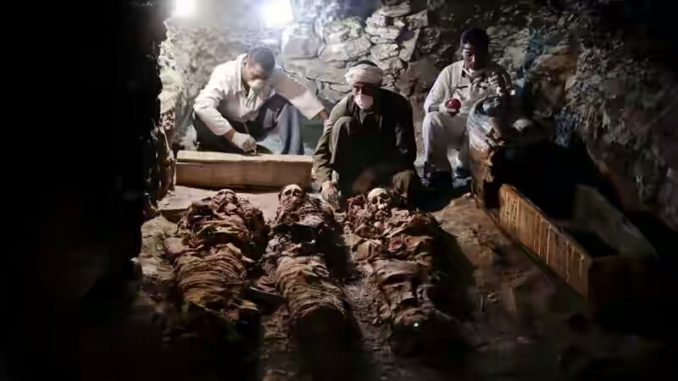
Egypt has announced the discovery of a pharaonic tomb in the southern city of Luxor belonging to a royal goldsmith who lived more than 3,500 years ago during the reign of the 18th dynasty.
The tomb is located on the west bank of the river Nile in a cemetery where noblemen and top government officials are buried.
Antiquities Minister Khaled el-Anany said the tomb is not in good condition, but it contains a statue of the goldsmith and his wife as well as a funerary mask.
He said a shaft in the tomb contained mummies belonging to ancient Egyptian people who lived during the 21st and 22nd dynasties.
The tomb was discovered by Egyptian archeologists and could boost Egypt’s slowly recovering tourism industry.
In April, archaeologists unearthed several mummies, 10 colourful wooden sarcophagi and more than 1,000 funerary statues near the city of Luxor.
Ushabti figurines (small carved figurines) were often placed with the deceased in ancient Egyptian tombs to help with responsibilities in the afterlife.
Inside the tomb, archaeologists wearing white masks and latex gloves inspected the sarcophagi, which were covered with intricate drawings in red, blue, black, green, and yellow – and featured the carved faces of the dead.
It was opened to add more mummies during the 21st Dynasty, about 3,000 years ago, to protect them during a period when tomb-robbing was common.